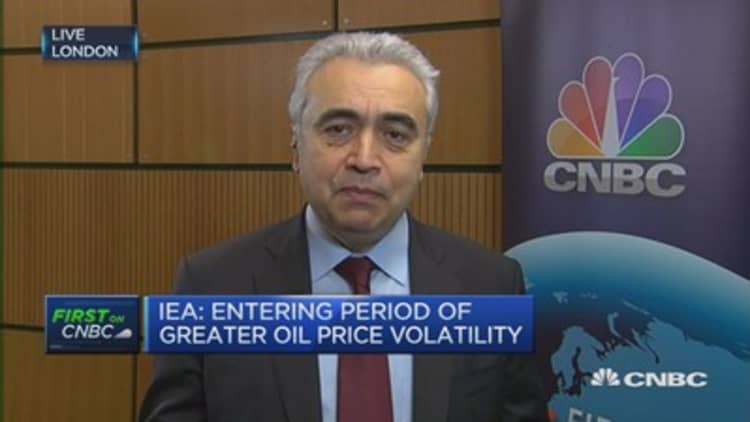The world's reliance on fossil fuels is far from over, despite investments in renewables and international deals to fight climate change, the International Energy Agency said Wednesday.
Though international agreements are expected to cut energy-related carbon emissions from an average of 650 million tons per year since 2000 to around 150 million tons per year in 2040, the IEA said that current efforts aren't strong enough.
"While this (reduction) is a significant achievement, it is far from enough to avoid the worst impact of climate change as it would only limit the rise in average global temperatures to 2.7 (degrees Celsius) by 2100," the IEA said in its new world energy report.
The Paris Agreement – the first climate deal supported by China and the U.S. – entered into force last week and aims to limit the increase in global temperatures to below 2 degrees Celsius. The IEA said that the target is "a major step forward" but politicians need to speed up the implementation of low carbon technologies and energy efficiency across all sectors. Ultimately, "government policies will determine where we go from here," Fatih Birol, the IEA's executive director, said in a statement.
There are concerns that President-elect Donald Trump will reverse the commitment of the previous administration to the Paris climate agreement.

Despite the international deals, the continuous investments in renewables and the slowdown in oil prices, fossil fuels remain the most used energy source to the planet.
"A detailed analysis of the pledges made for the Paris Agreement on climate change finds that the era of fossil fuels appears far from over and underscores the challenge of reaching more ambitious climate goals," the IEA said.
The IEA predict that demand for oil is set to increase until 2040, given the lack of investment in alternative sectors. However, it adds that long-term, further investment in oil and gas are essential to ensure that energy demand is met across the globe – something that the current low oil prices undermine.
"Traditional concerns related to oil and gas supply remain – and are reinforced by record falls in investment levels. The report shows that another year of lower upstream oil investment in 2017 would create a significant risk of a shortfall in new conventional supply within a few years," the IEA said.





